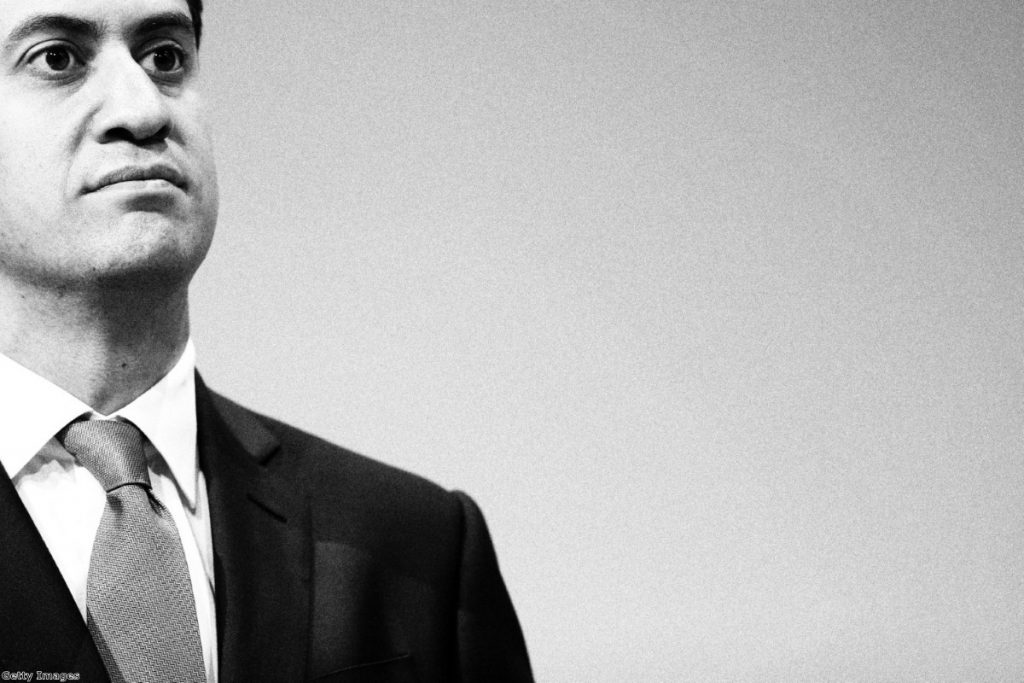Non-doms: Miliband has found his voice
Miliband's announcement today of an end to non-dom status in Britain is the first big unpredictable moment in the election. It'll prove popular with voters, has already wrong-footed the Tories and Lib Dems, and provides a substantial, satisfying policy for journalists and experts to get their teeth into. Thank God the endless trench warfare of 'trust on the NHS' vs 'trust on the economy' is over, if only for a couple of days.
But just as important as the policy itself is the language the Labour leader will use to promote it in his speech in Warwick today. He lays out his principles clearly and compellingly, saying "anyone permanently resident in the UK will pay tax in the same way". He dismisses the questionable financial advantages of turning Britain into an offshore tax haven. And he attacks his critics for their constant insistence that any interference with the wealthy – be it the minimum wage or regulations on banks – will lead to capital flight, saying: "Guess what? They're still here."
All good stuff. But the key part of Miliband's speech comes when he outlines the "moral reason" for the policy. He says:
"We all use the same roads, we are all protected by our police and armed forces, even those who go private sometimes rely on the NHS. It is the common good. We use these same services therefore we all owe obligations to help fund them according to our ability to do so."
This is a Labour leader, for the first time in a long time, expressing the philosophical underpinning of left wing thought in a way which should appeal to voters.
Miliband began his leadership by distancing himself from Tony Blair's New Labour project, but it's only now we're seeing the impact of that distancing on the way Labour expresses its political programme.
Under Blair, citizens were turned into consumers. Their access to hospitals or schools were assessed entirely on the basis of 'choice'. Never mind the fact that no-one wants a choice over their hip operation or their son's education – they just want it done right. Public services were interpreted in the same manner as shopping on the high street. It was an act of consumption, not an act of common enterprise. All economic interactions were considered equivalent to buying cufflinks in Tie Rack.

New Labour stripped Labour of a philosophical underpinning
Once that idea is accepted, the welfare state and public services are doomed. If we're not members of a society but self-interested consumers, how come we all have to pay? Why should people who go private contribute to the NHS? Why should someone who doesn't drive pay for road maintenance? Perhaps people who go out less in the evening should contribute less to street lighting. Once you give up on the common good, these are rational questions to ask and the left struggled to answer them.
For decades Labour has been terrified of expressing the idea of a common good because it sounds socialist. Thatcher's victory was to leave the party unable to express its core function, even though polls show the public still believes in the socialist sectors of a mixed economy and would in fact expand them to areas such as rail travel.
There is space to express these ideas without having to sing the Internationale and man the barricades. But for years Labour has not had the language to do so.
Under New Labour, the NHS was considered a product for citizens rather than a public service
It consequently got lost in policy jargon, a style of politics which turns the public off and sucks the passion out of any debate. The way the left's principles have been gutted meant it was unable express itself with the conviction of right-wing politicians, whose philosophical assumptions were interpreted as objective truths about the human condition. No wonder Scots and many other Labour-inclined voters gave up on the party. It would do nothing to challenge the neo-liberal consensus. It's only solutions were acts of grand tinkering, like tax credits.
Miliband deserves credit for daring to challenge that trend. The Warwick speech doesn't just announce a policy which has the potential to blow the election open. It marks the moment Labour started to recover from the failure of nerve it experienced under Tony Blair.












